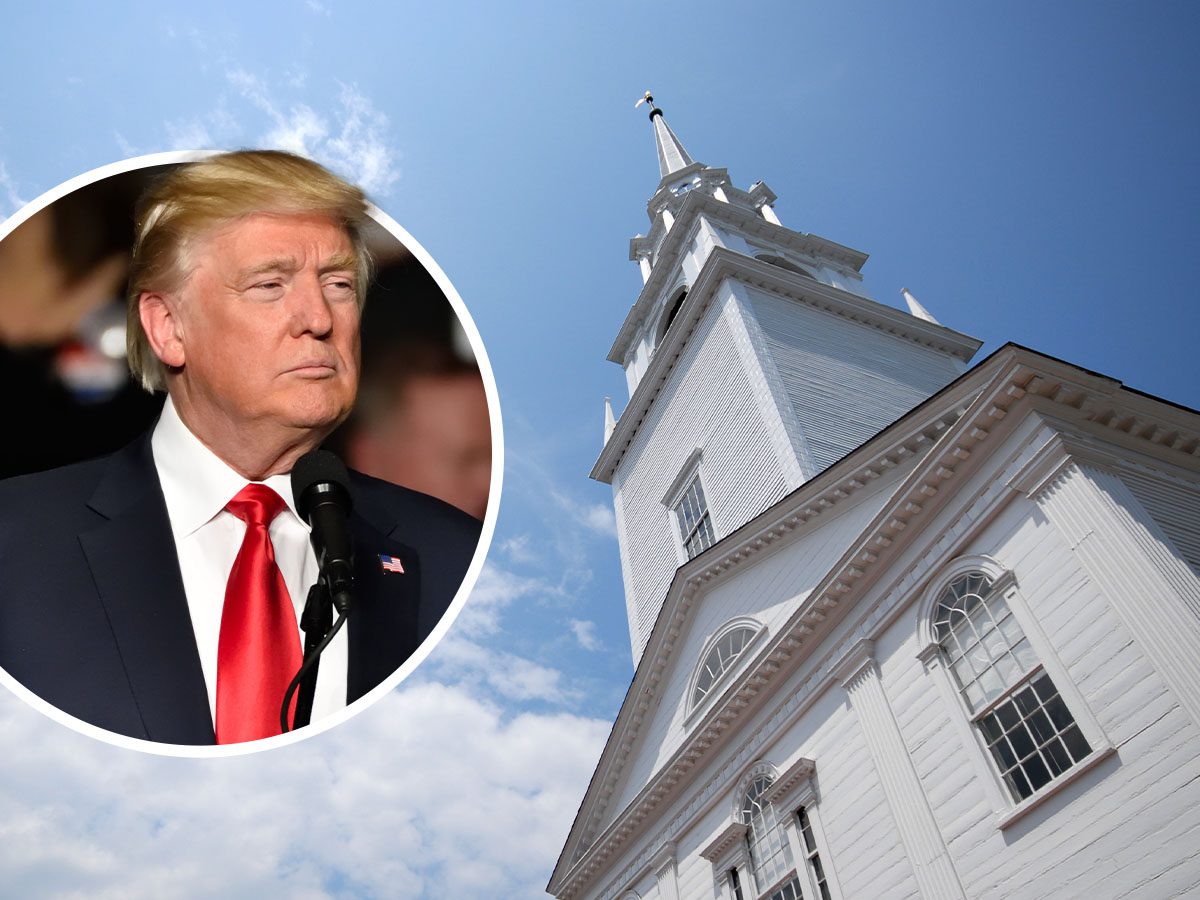
In recent years, a troubling trend has emerged within some segments of the evangelical community, as self-proclaimed “prophets” have increasingly tied their religious beliefs to political figures, most notably former President Donald Trump. This phenomenon, which has gained significant traction, raises deep concerns among mainstream evangelical leaders who warn that aligning religious faith with specific political candidates is dangerous and detrimental to the Christian witness.
The surge in pro-Trump prophecies can be traced back to 2015, when Paula White-Cain, a televangelist known for her prosperity gospel teachings, became Trump’s liaison with the evangelical community. White-Cain, although not initially connected with many high-profile figures on the religious right, had strong ties with charismatic pastors and prophets. This connection led to a wave of prophecies proclaiming Trump as a divinely appointed leader.
Matthew D. Taylor, a senior scholar at the Institute for Islamic, Christian, and Jewish Studies, notes that this movement gained momentum after Trump’s unexpected victory in 2016. “When Trump wins in 2016, those prophets look like they really hit the nail on the head,” Taylor said. “This just led to a proliferation, and by the 2020 campaign, there are hundreds of these prophecies from different prophets, each claiming that God spoke to them individually and said that Donald Trump was destined to have a second term.”
The impact of these prophecies has been profound. Figures such as Julie Green, Shane Vaughn, and Johnny Enlow have gained substantial followings by promoting the idea that Trump is a secular messiah who will restore America’s Christian values. Their messages resonate with many who believe that the former president embodies a divine mission to lead the nation out of cultural and spiritual decline.
However, the rise of these pro-Trump prophets has not gone without opposition. Many evangelical leaders are sounding the alarm, warning that the intertwining of religious prophecy and political endorsement is not only theologically unsound but also a threat to the integrity of the Christian faith.
Kimberly Reisman, executive director of World Methodist Evangelism, is one such voice of caution. She emphasized the potential harm this trend could have on Christians across the United States. “God can use leaders from all parties, and to equate God’s will with the will of any political party or person is exceedingly dangerous and a threat to the overall witness of Christians in the United States,” Reisman said in a statement on July 31.
Carl Nelson, president of Transform Minnesota, echoed this sentiment, warning that church leaders’ endorsements often fail to “hold that candidate accountable to the full spectrum of values we represent.” The concern is that by endorsing a specific political figure, church leaders may compromise the broader Christian mission, reducing it to a partisan agenda rather than a universal call to live out the teachings of Christ.
The National Association of Evangelicals (NAE) has also recognized this issue. Their May/June Evangelical Leaders Survey revealed that an overwhelming 98 percent of evangelical leaders now believe that pastors should not endorse politicians from the pulpit. This marks a significant shift from 2017 when 89 percent held this view.
The growing opposition to political endorsements from evangelical leaders concerns not just the preservation of the sanctity of the church but also the broader implications for American democracy. Taylor highlighted the dangers of infusing spiritual warfare language into political discourse, warning that it can lead to an intractable divide where compromise and negotiation become impossible.
“This language of spiritual warfare has gotten more and more infused into our politics,” Taylor explained. “If you believe that every policy dispute, every election is an arena of constant combat between good and evil, you have no motivation ever to compromise or negotiate. What negotiation is there with allies and demons?”
The consequences of such polarization are already evident, with the rhetoric surrounding the 2024 election reaching a fever pitch. Taylor expressed concern that the intertwining of prophecy with politics could lead to a “harrowing season for American democracy” as the lines between religious conviction and political allegiance blur beyond recognition.
As the 2024 election approaches, evangelical leaders are urging their communities to exercise discernment and prioritize the teachings of Christ over partisan politics. The call is not to disengage from the political process but to engage with integrity, ensuring that the Christian witness remains untainted by the shifting winds of political power.
Reisman’s cautionary words serve as a reminder of the broader mission of the church: “Equating God’s will with the will of any political party or person is exceedingly dangerous.” In a time of deep division and uncertainty, the role of the church is not to serve as a political pawn but as a beacon of hope, love, and truth.


